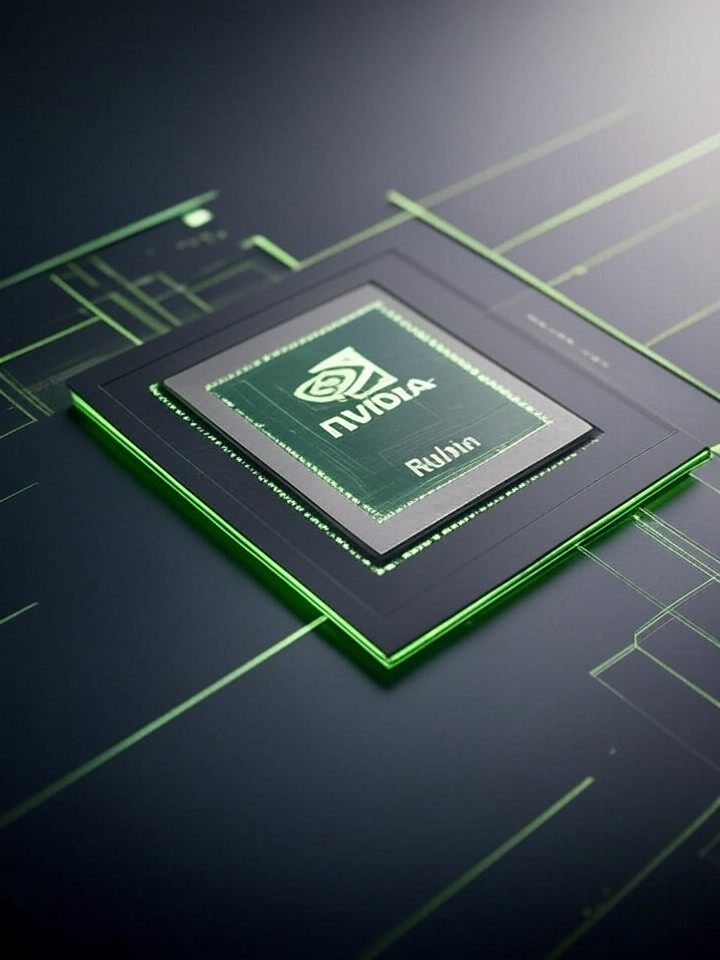Alibaba’s Qwen AI Surpasses 10 Million Downloads, Redefining Global AI Competition
Alibaba’s newly launched Qwen AI application is making waves across the global tech landscape. Within just a week of its public beta release, Qwen AI has attracted over 10 million downloads, surpassing early adoption rates recorded by leading platforms such as OpenAI’s ChatGPT, DeepSeek, and Sora. This rapid growth reflects how the Chinese technology giant is reshaping the future of Artificial Intelligence (AI) commercialization and redefining user engagement across digital ecosystems.
The Rise of Qwen AI: A Game-Changer in the Global AI Race
Alibaba’s Qwen AI, part of the company’s broader strategy to dominate the AI sector, integrates advanced generative AI capabilities into a single, user-friendly platform. Designed to serve both consumers and businesses, Qwen AI leverages Alibaba Cloud’s robust infrastructure to offer powerful functionalities, including text generation, summarization, image creation, and intelligent chatbot interactions.
This ambitious product launch arrives amid growing competition among major technology players like Microsoft, Google, OpenAI, and Baidu. Yet, the momentum behind Qwen AI suggests that Alibaba has effectively combined technological innovation with large-scale accessibility. In a market increasingly driven by user experience and adaptability, the app’s explosive adoption demonstrates not only Alibaba’s engineering prowess but also its ability to capture shifting user expectations for AI-driven tools.
Commercializing AI: Alibaba’s Strategic Approach
Unlike the early-stage deployments seen in Western markets, Alibaba has positioned Qwen AI to operate as a comprehensive ecosystem rather than a simple application. It connects directly to cloud-based resources, enterprise APIs, and Alibaba’s suite of productivity solutions, allowing the company to seamlessly monetize AI-powered workflows.
Experts suggest that this approach could give Alibaba a significant advantage. By embedding Qwen AI into its existing digital commerce and cloud infrastructure, the company is able to generate new revenue streams while enhancing its core services. Businesses can integrate Qwen AI to automate content creation, customer service, and data analysis—all without requiring specialized technical expertise.
How Qwen AI Outpaces ChatGPT, DeepSeek, and Sora
The early growth statistics speak volumes. Within seven days, Qwen AI surpassed 10 million installs, outperforming comparable early adoption figures recorded by ChatGPT, Sora, and DeepSeek. This trend reflects the growing appetite for AI tools in China and the effectiveness of Alibaba’s brand recognition, particularly among consumers who value localized solutions.
Moreover, Qwen AI’s cross-platform integration and support for multiple languages have made it a preferred choice for both technical and non-technical users. By offering seamless onboarding, privacy-conscious data management, and transparent usage policies, Alibaba has managed to attract a diverse range of users who previously hesitated to adopt AI due to data security concerns or complexity barriers.
Technology Behind Qwen AI: The Power of Qwen 2.5 Large Language Model
At the heart of Qwen AI lies Alibaba’s proprietary Qwen 2.5 large language model (LLM), which combines natural language understanding, image recognition, and multimodal intelligence. Built on Alibaba Cloud’s high-performance computing infrastructure, this model powers the app’s advanced capabilities, enabling it to perform tasks such as real-time translation, personalized recommendations, and document analysis.
The technology has been designed with scalability in mind, ensuring that enterprises can deploy customized instances according to their operational needs. Furthermore, Alibaba’s emphasis on ethical AI design—enforcing strict privacy, accuracy, and bias mitigation frameworks—positions Qwen AI as a trustworthy alternative in a rapidly evolving global landscape.
Applications Across Industries
Qwen AI’s versatility extends beyond individual users. In business contexts, it is already being utilized across sectors such as:
- E-commerce: Enhancing product listings, automating customer engagement, and improving recommendation engines.
- Finance: Streamlining data analysis, fraud detection, and risk forecasting using natural language querying.
- Education: Delivering personalized tutoring, automating grading systems, and enabling language support tools.
- Healthcare: Supporting research, patient communication, and data summarization workflows.
This cross-sector applicability makes Qwen AI a potent tool for modern digital transformation strategies, especially in markets seeking scalable AI solutions without prohibitive costs.
The Broader Impact: Redefining Global AI Commercialization
Alibaba’s success with Qwen AI highlights a significant shift in the global AI commercialization narrative. Instead of relying solely on premium subscription-based models, Alibaba’s distribution strategy focuses on accessibility and integration. This democratized approach allows individuals and organizations to explore generative AI capabilities without high entry barriers.
By capturing early user loyalty, Alibaba sets a precedent for how global tech companies might approach AI distribution. The company’s ability to merge advanced AI with practical business solutions could pressure Western competitors to rethink their monetization and localization strategies.
Market Analysts Weigh In
Industry analysts emphasize that Qwen AI’s milestone is more than a marketing success—it signals the maturity of China’s AI ecosystem. With the backing of Alibaba Cloud, the application reflects how national technology firms are now competing at scale in domains once dominated by U.S.-based entities such as OpenAI and Google.
According to experts, the app’s quick climb in user numbers is likely supported by Alibaba’s robust ecosystem integration, from retail and logistics to digital payments. This holistic approach ensures that users experience tangible value, encouraging sustained engagement beyond the initial novelty of generative AI tools.
Challenges Ahead for Alibaba’s Qwen AI
Despite the overwhelmingly positive reception, Alibaba faces challenges in maintaining Qwen AI’s growth trajectory. Scaling infrastructure to meet rising demand while ensuring data compliance across international jurisdictions remains a complex endeavor. Additionally, continuous innovation will be crucial to maintain parity with global competitors that are rapidly upgrading their own AI models.
Another pressing concern is the potential regulatory environment. As governments worldwide formulate guidelines for AI ethics and cross-border data flows, Alibaba must navigate evolving compliance frameworks to secure Qwen AI’s place as a globally trusted platform.
Outlook: Qwen AI’s Role in the Future of Intelligent Applications
With its early success, Qwen AI has emerged as one of the leading contenders in the next generation of AI-powered platforms. Its ability to attract millions of users in such a short period demonstrates the increasing mainstream acceptance of AI as an everyday digital assistant. Going forward, Alibaba plans to expand Qwen AI’s enterprise integrations, developer tools, and international partnerships, positioning it as both a consumer product and a productivity engine.
Ultimately, Alibaba’s achievement goes beyond breaking download records—it represents a turning point in the democratization of artificial intelligence. The company’s fusion of generative capability, usability, and strategic distribution marks a blueprint for how AI applications can thrive in both emerging and developed markets.
Conclusion
Alibaba’s Qwen AI reaching 10 million downloads within a week of its release is more than a statistical triumph. It signifies the dawn of a new global AI era where accessibility, speed, and integration define success. As Alibaba continues to innovate and expand Qwen AI’s reach, competitors will need to elevate their own AI strategies to remain relevant in this dynamic landscape. For users and enterprises alike, Qwen AI represents a glimpse into the future of how artificial intelligence will shape productivity, creativity, and connectivity in the digital age.











